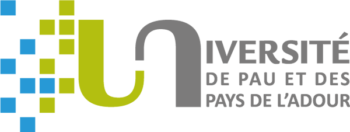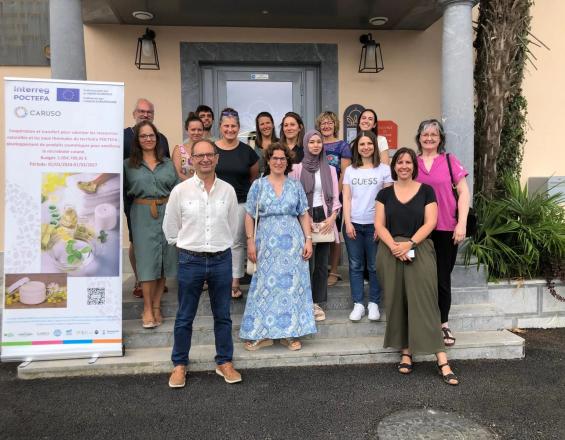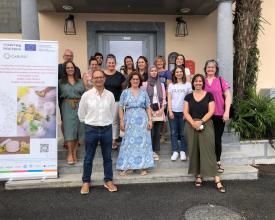
Harnessing the Hidden Power of Thermal Waters: Microbiomes for a Healthy Planet

The management and conservation of natural resources is a global challenge, essential for promoting both environmental and economic sustainability in rural areas. The Pyrenees region, at the border between France and Spain, is particularly rich in thermal springs and medicinal plants with well-recognized therapeutic properties. The CARUSO project aims to transfer knowledge and innovation generated by research on the valorization of natural resources to local businesses. Its ambition is to enable companies to develop innovative and sustainable dermocosmetic products that can actively contribute to the economic and social revitalization of the region. The project focuses on exploring the microbiome of Pyrenean thermal waters and identifying the bioactive metabolites produced by these unique microorganisms. This research relies on a multidisciplinary approach, combining chemical analyses, metagenomics to characterize the microbiome, and metabolomics to identify metabolites present in the waters.
Impacts
The Pyrenean thermal springs are valuable natural resources with long-recognized therapeutic properties, yet they face multiple challenges that hinder their sustainable valorization.
Environmental challenges: These waters host unique microbiome with potential role in water chemistry and bioactive metabolite production. However, this biodiversity remains poorly characterized, limiting our understanding of ecosystem functions and resilience to external pressures. The absence of ecological knowledge increases the risk of unsustainable exploitation and the loss of microbial resources with potential applications.
Social challenges: The health benefits are largely acknowledged through tradition but lack scientific validation. This gap reduces public confidence in their therapeutic properties, underestimates their contribution to well-being, and weakens their cultural identity.
Economic challenges: The economic use is mostly limited to spa tourism, while local cosmetic industries often rely on chemical molecules. This lack of innovation restricts opportunities for developing local, sustainable dermo-cosmetic products and limits regional competitiveness.
Our solution addresses these issues by characterizing the microbiome and metabolites of thermal waters, linking ecological knowledge to therapeutic validation, and transferring results to local spas for sustainable environmental management and green economic growth.



